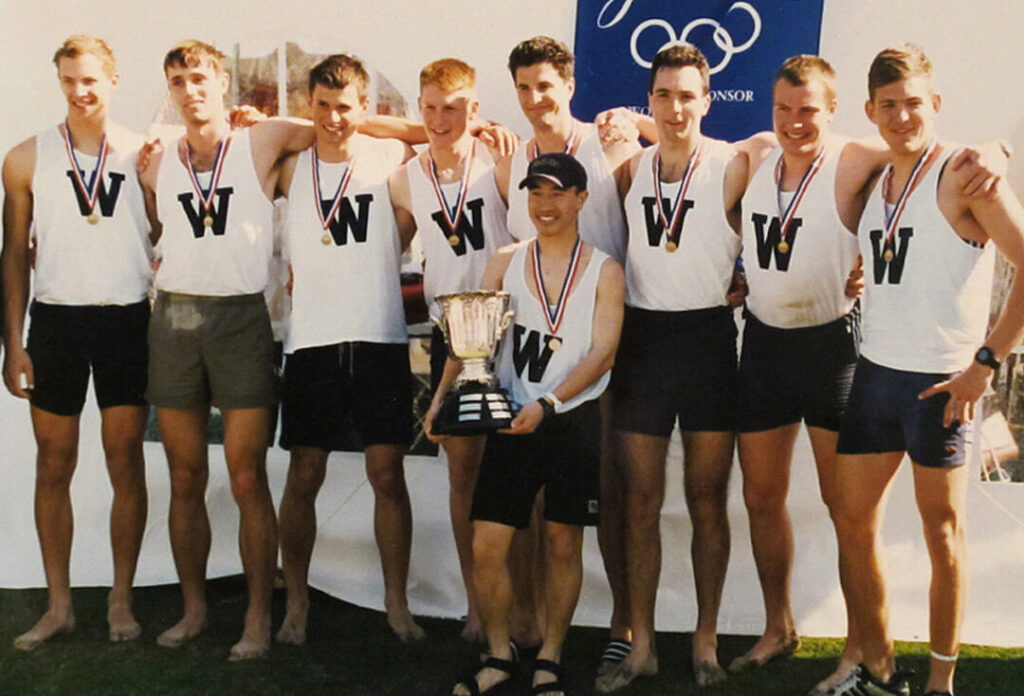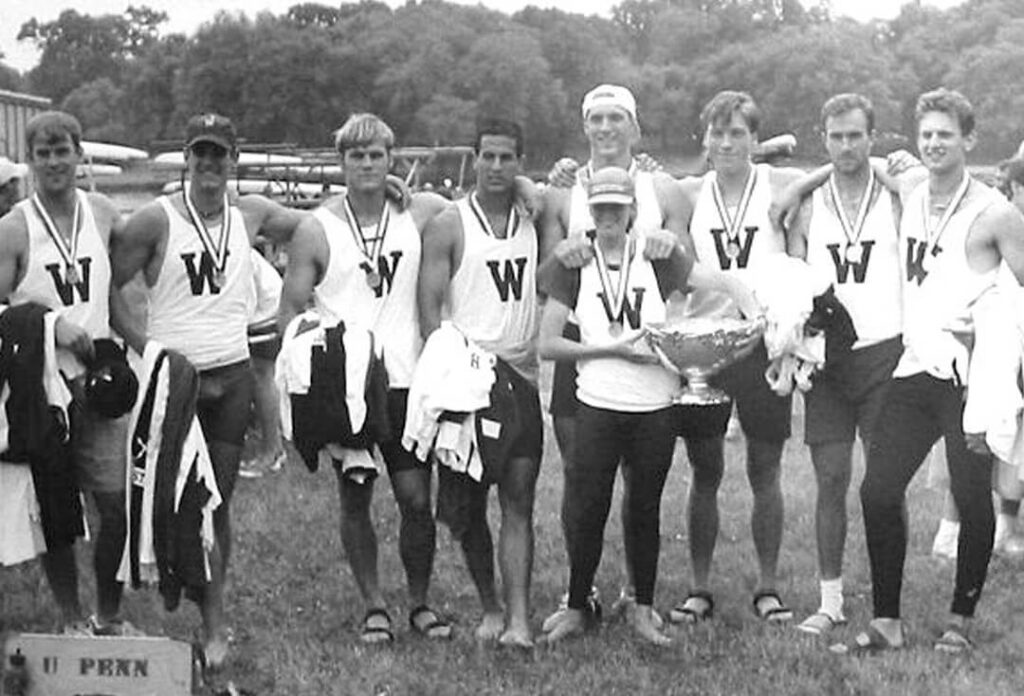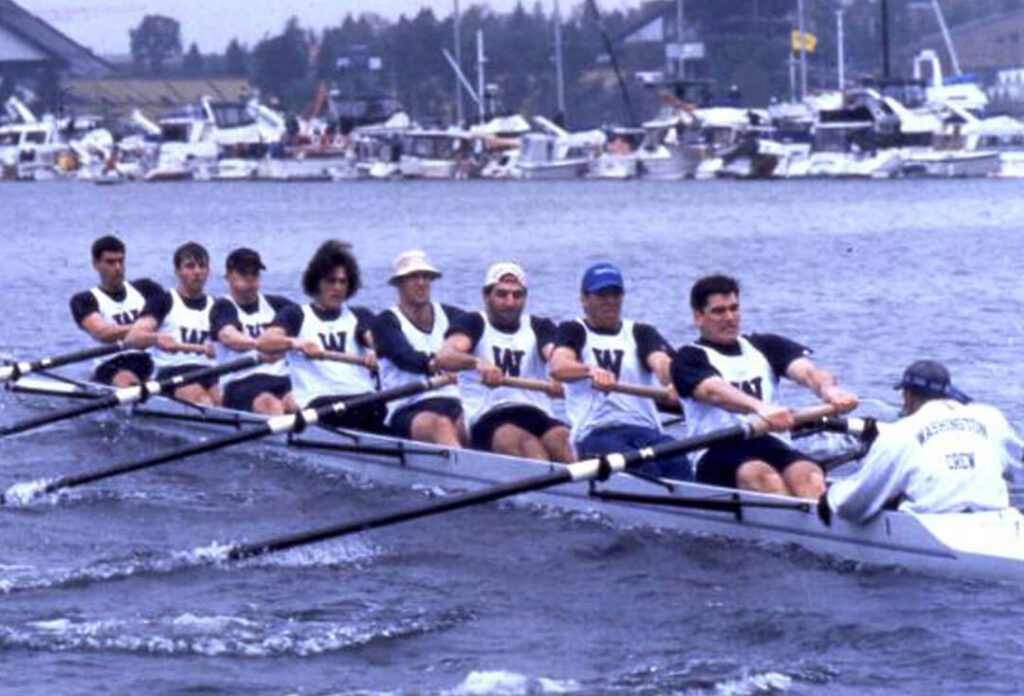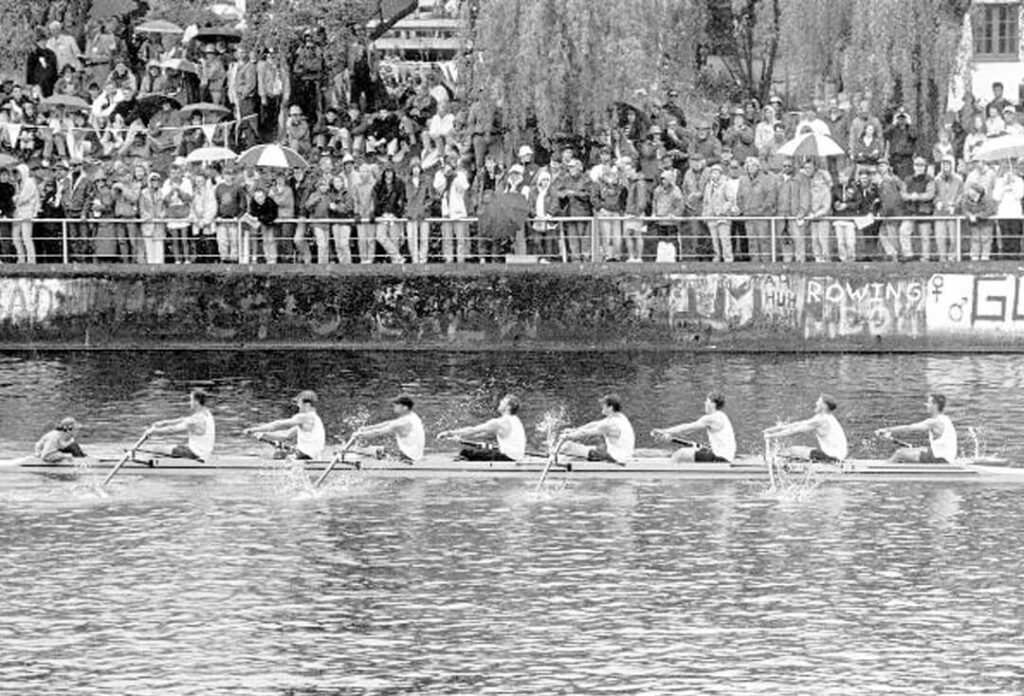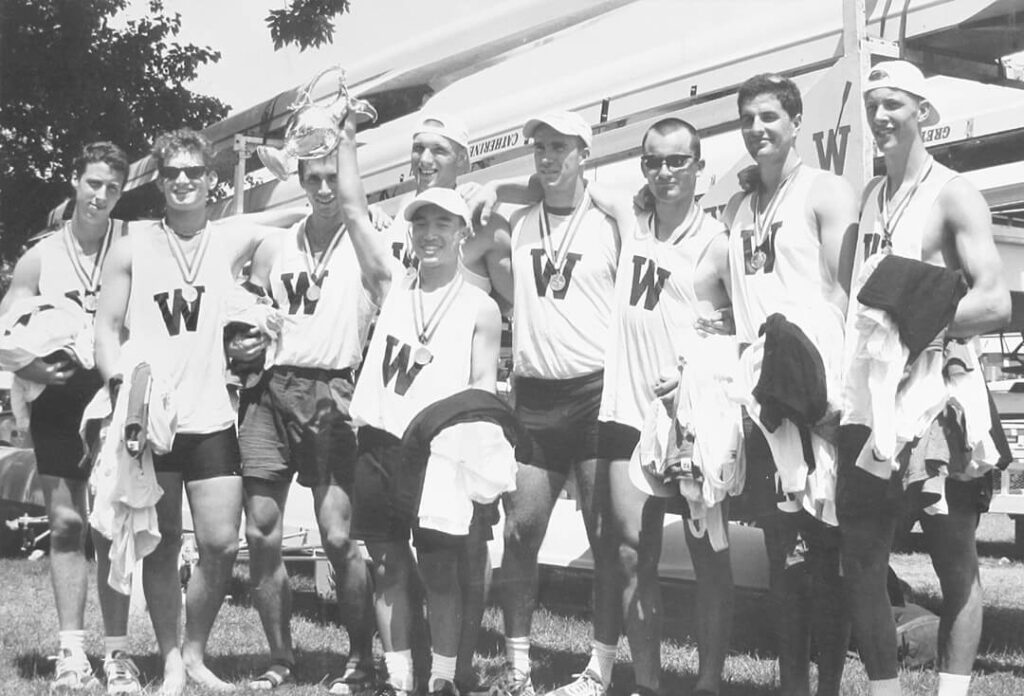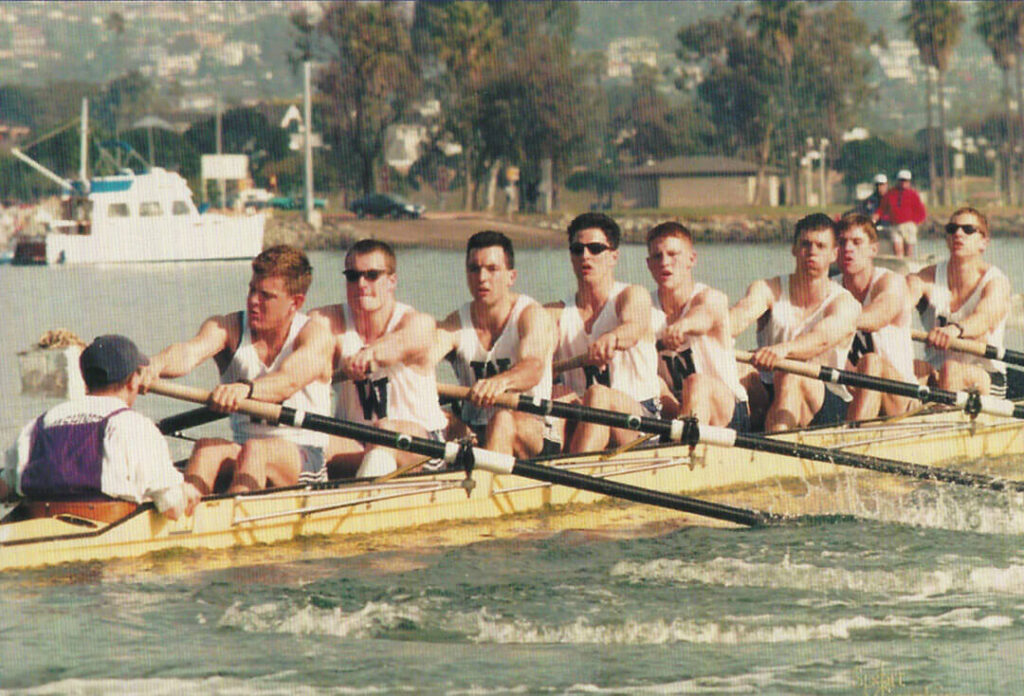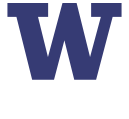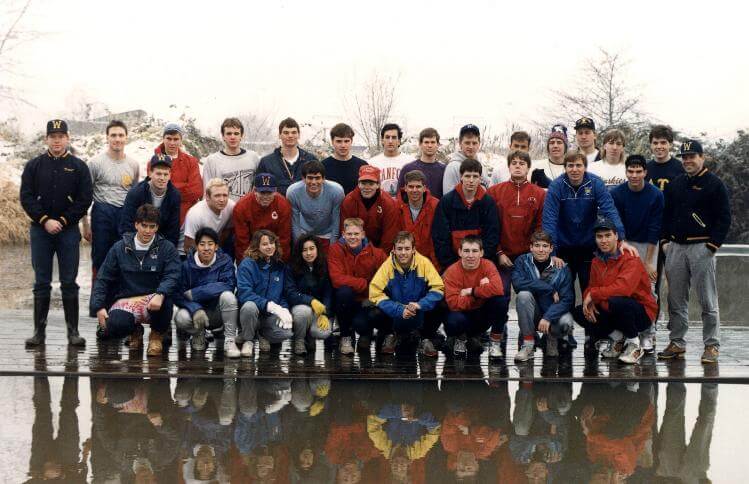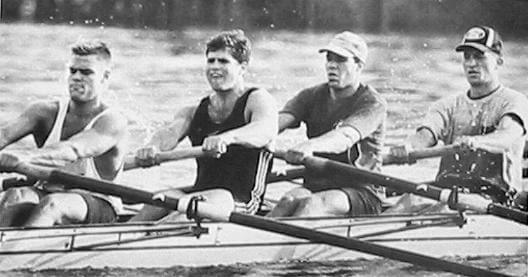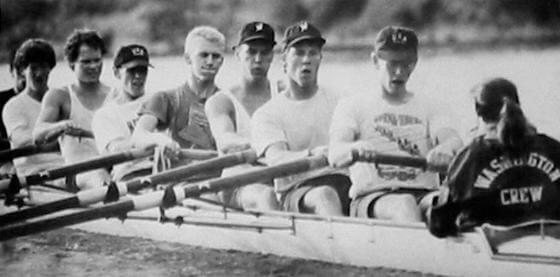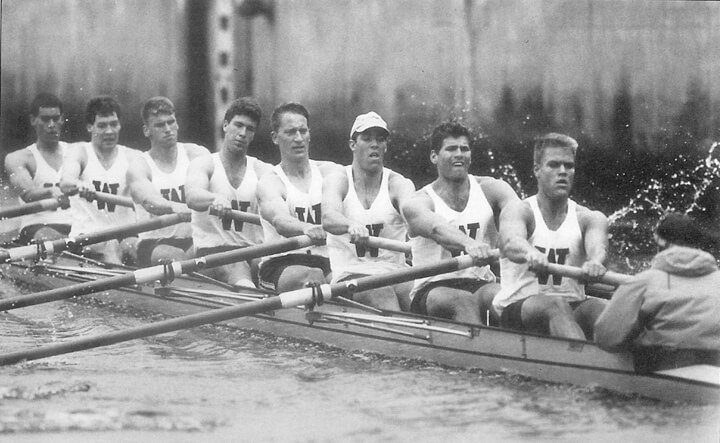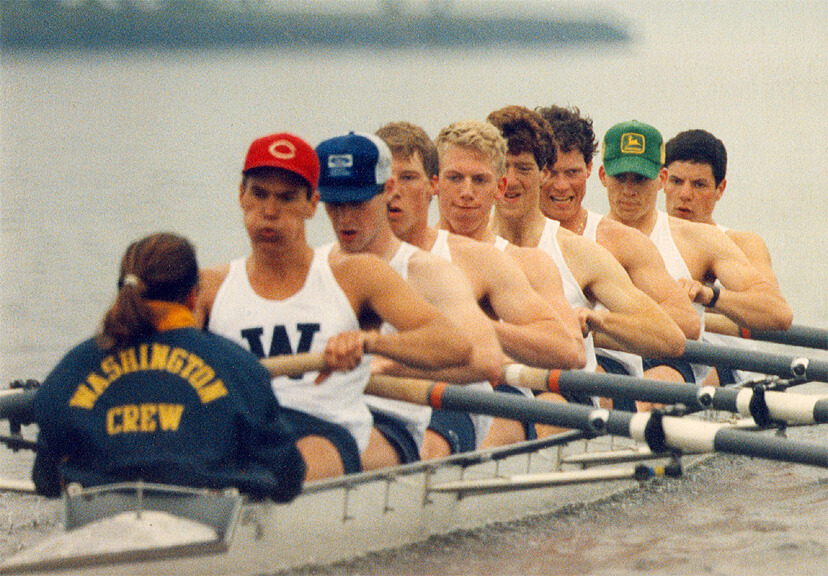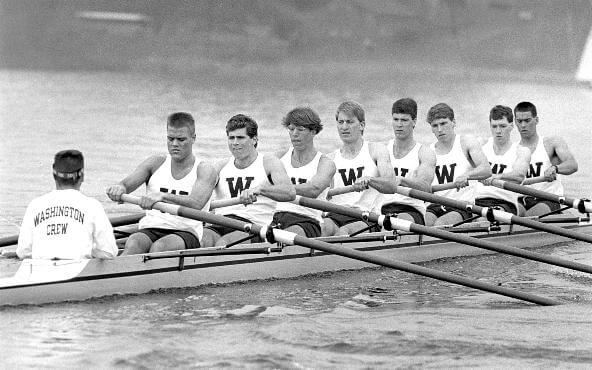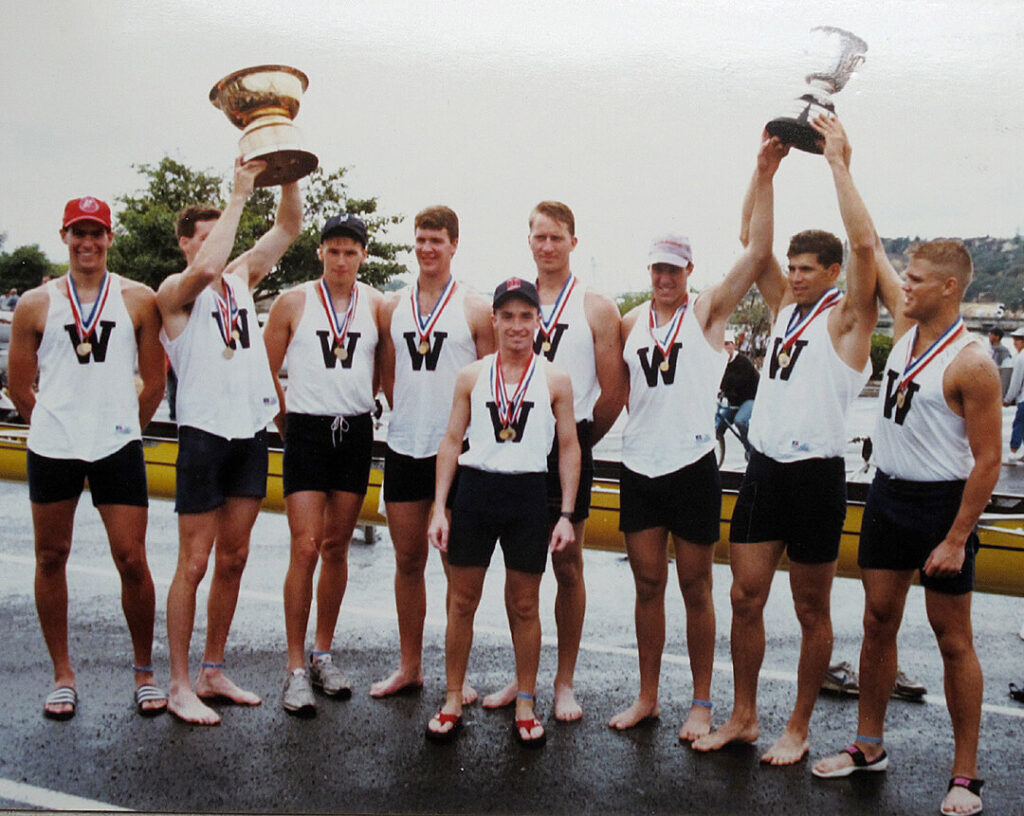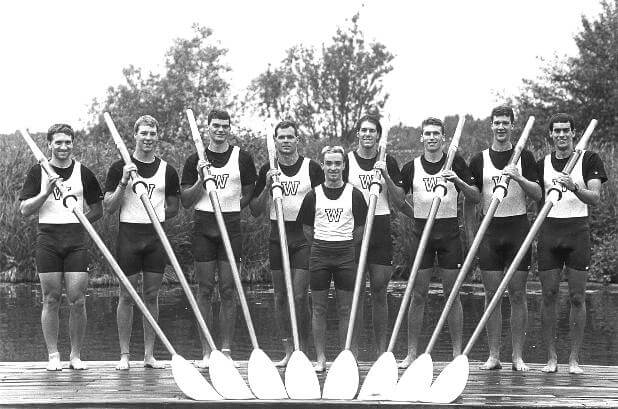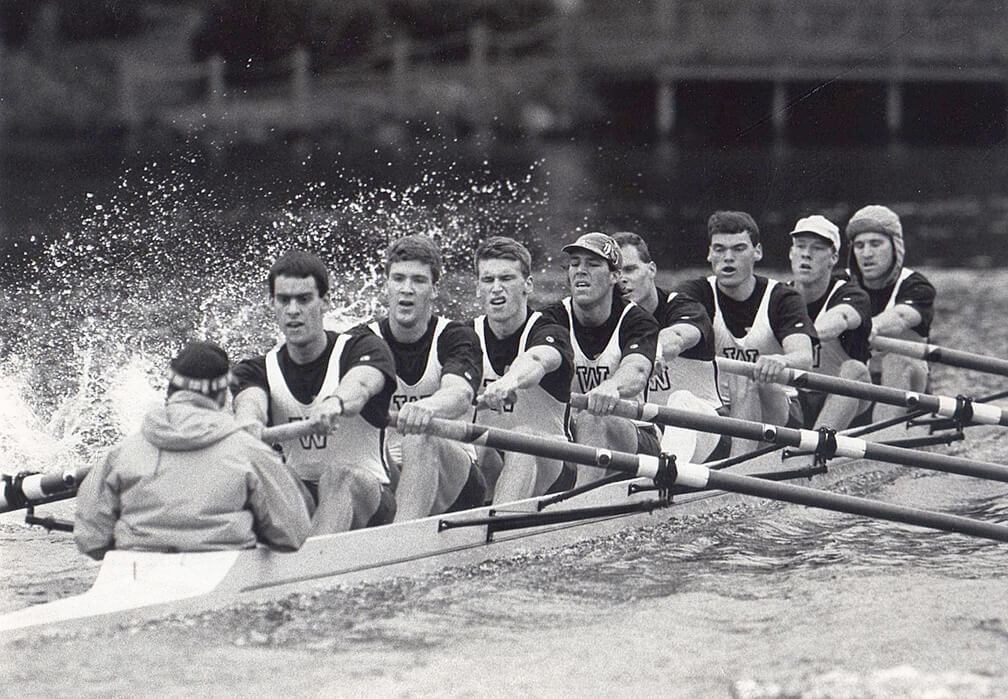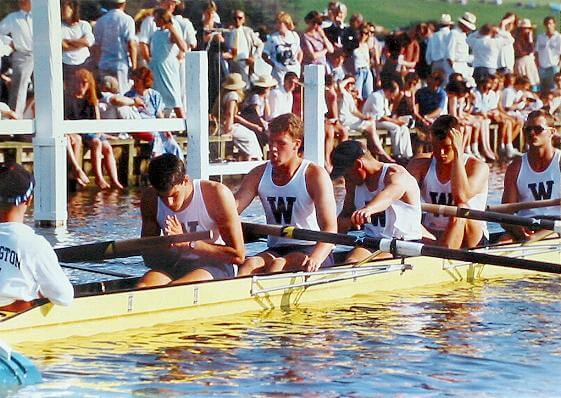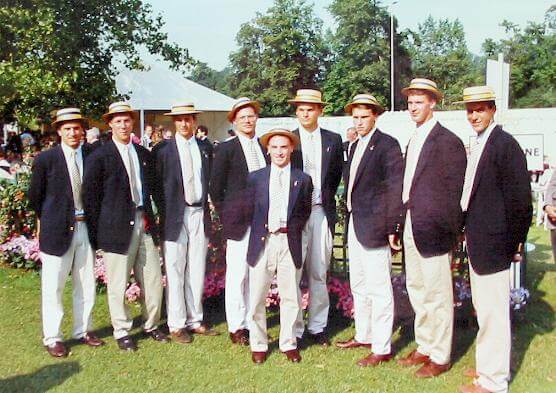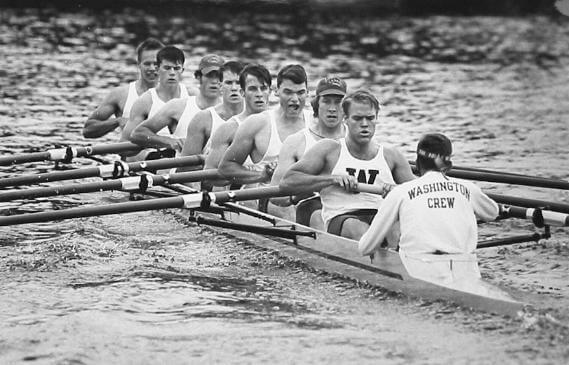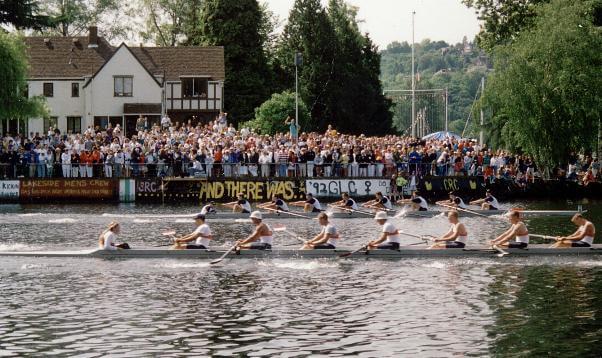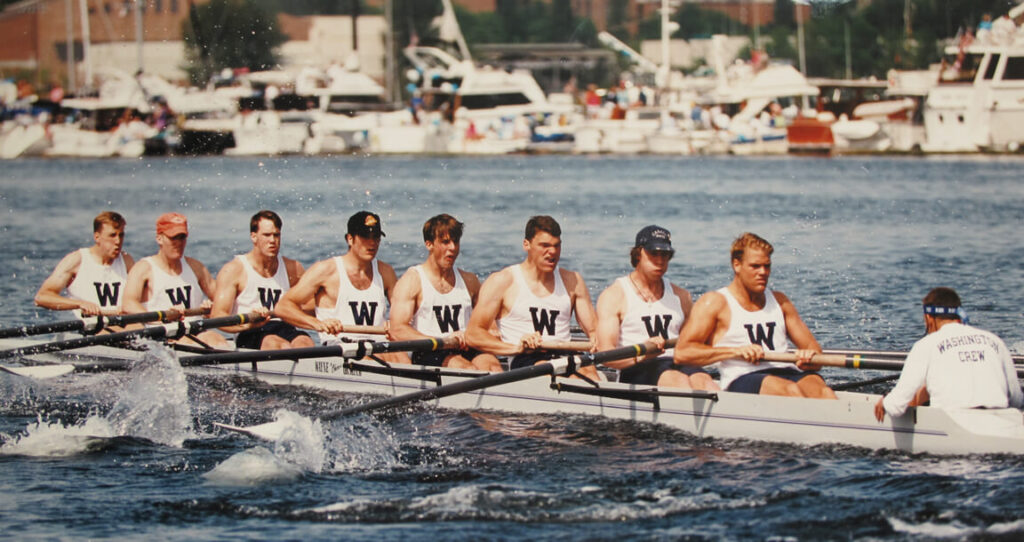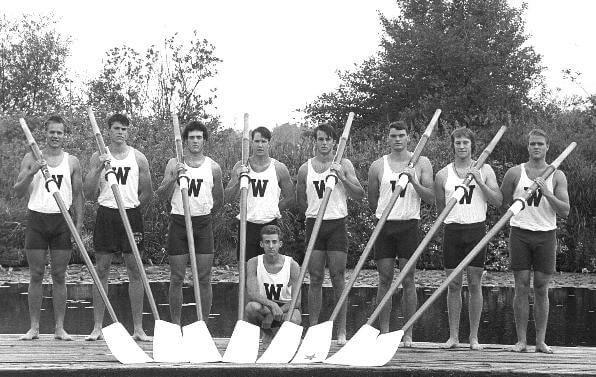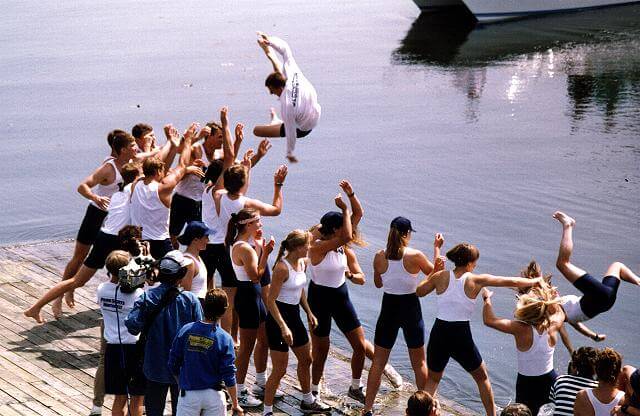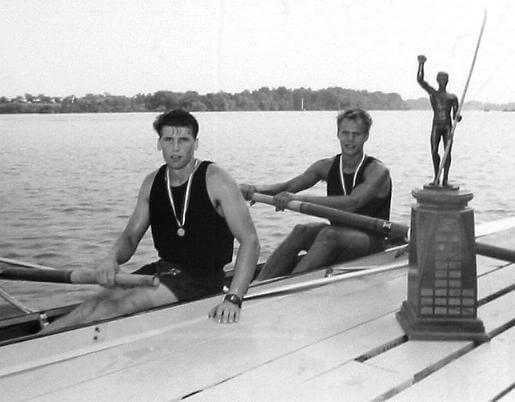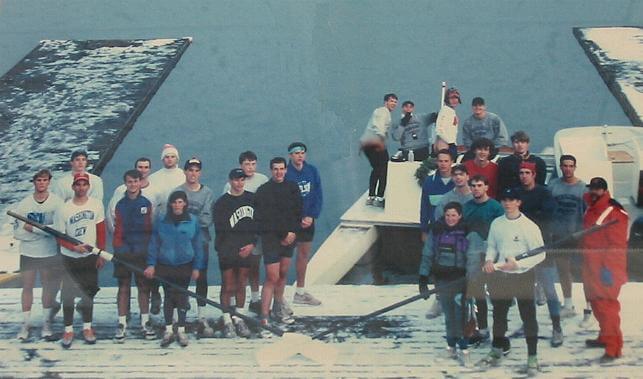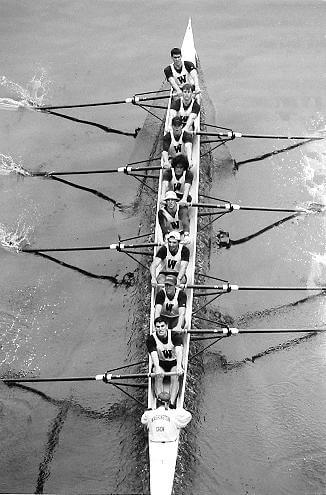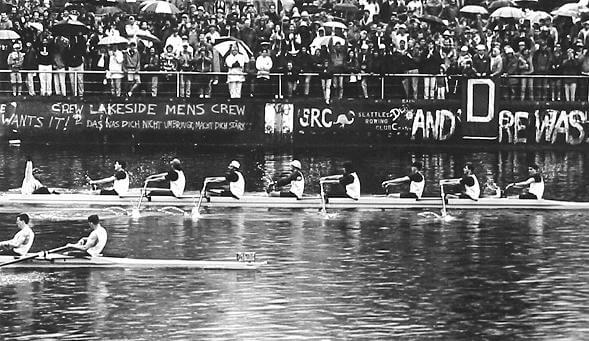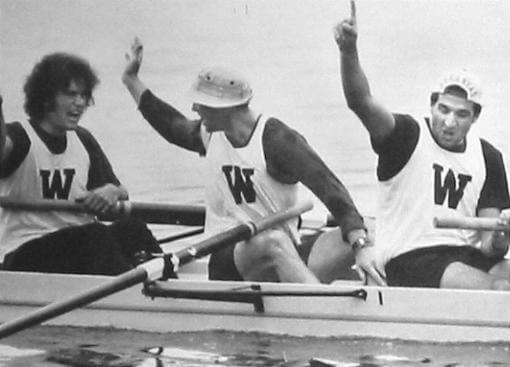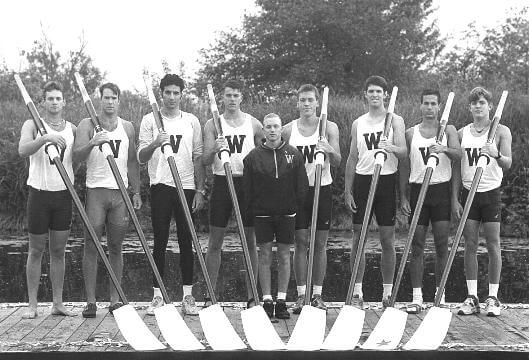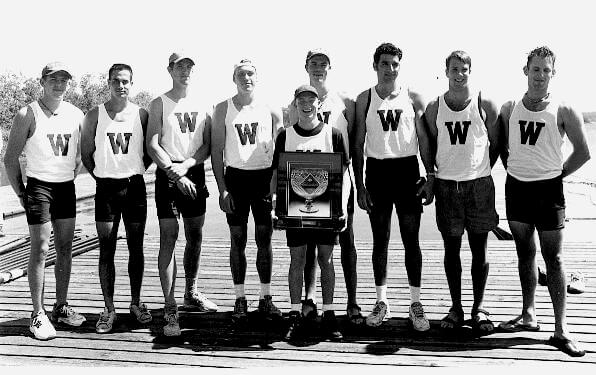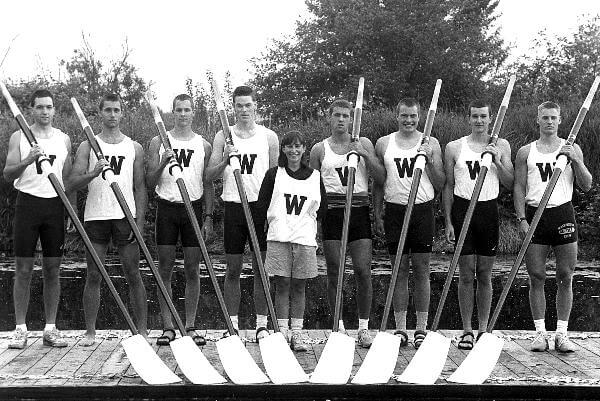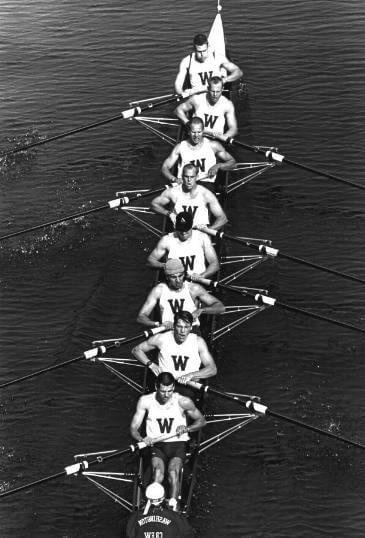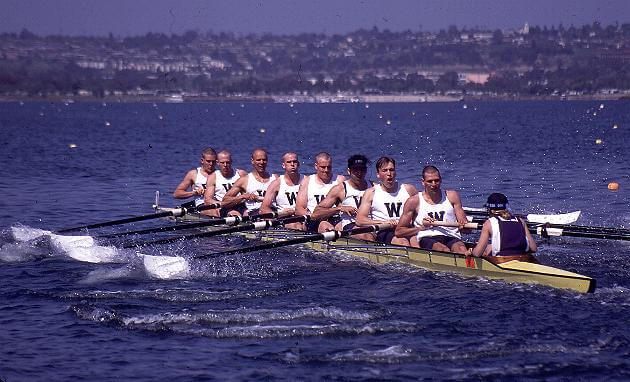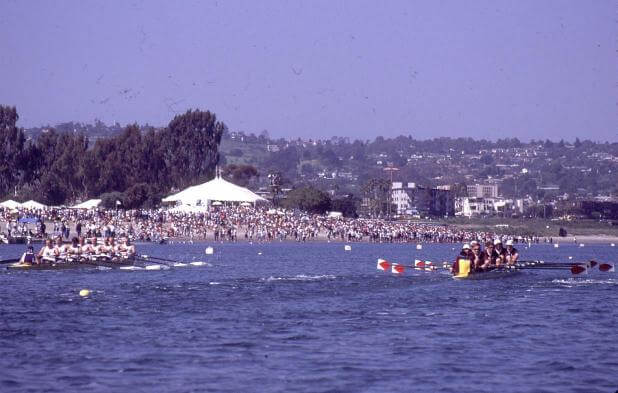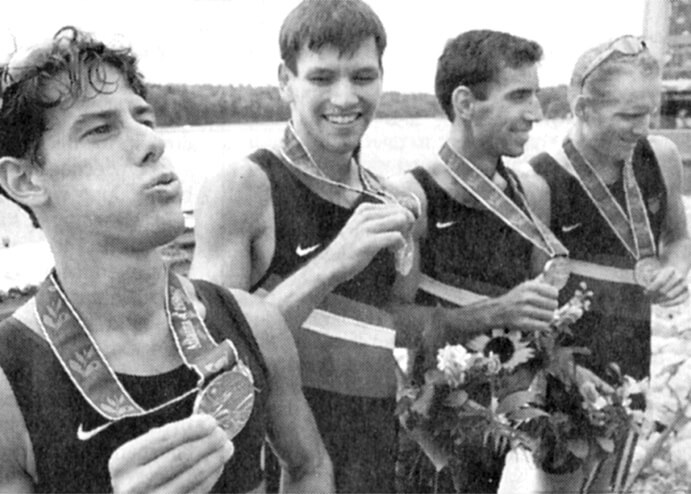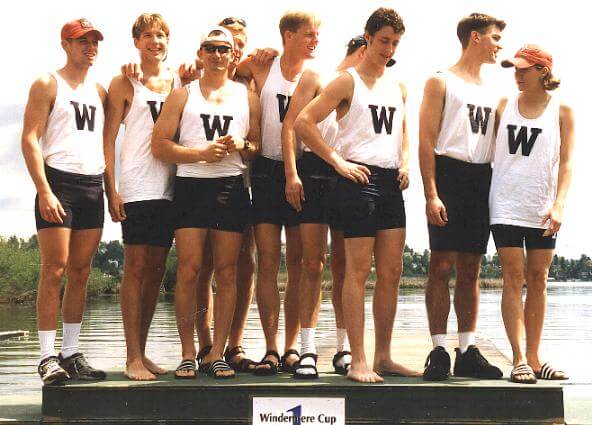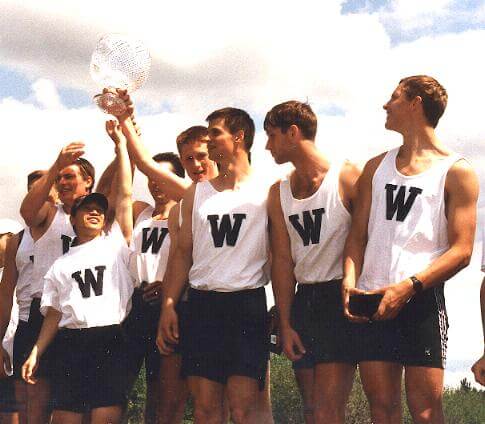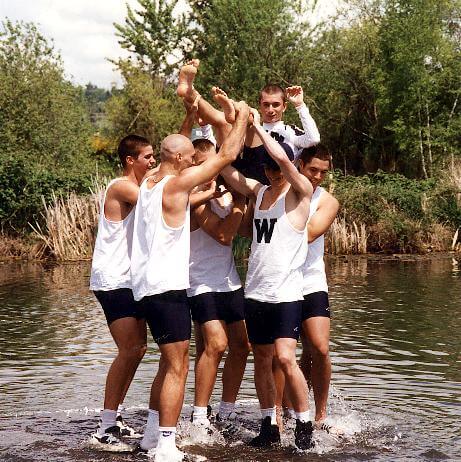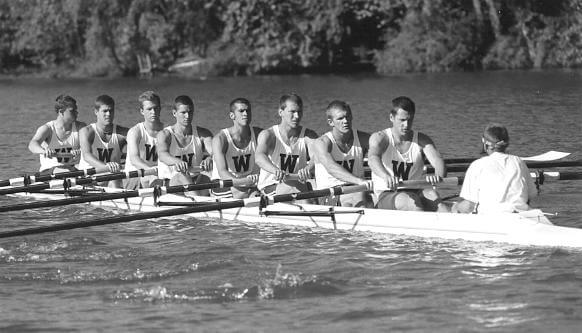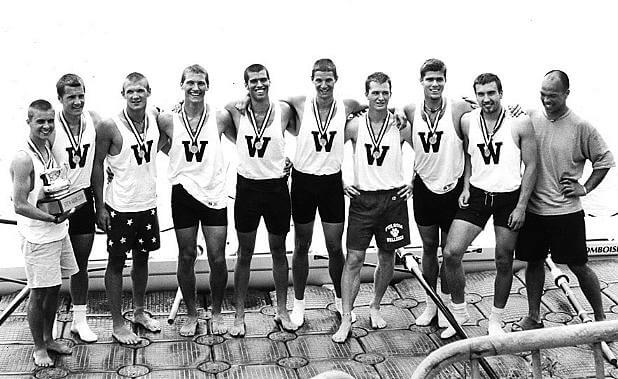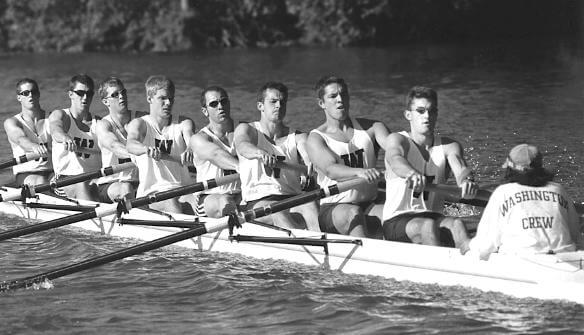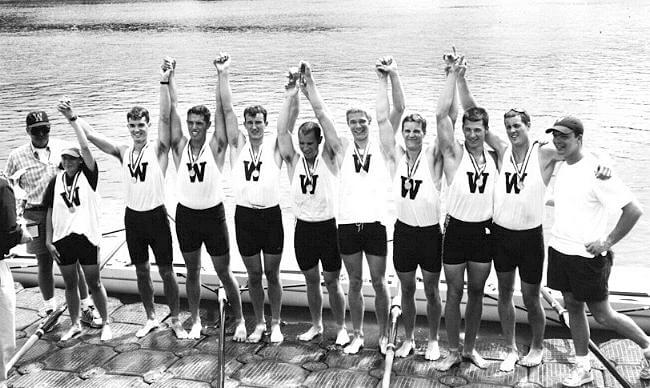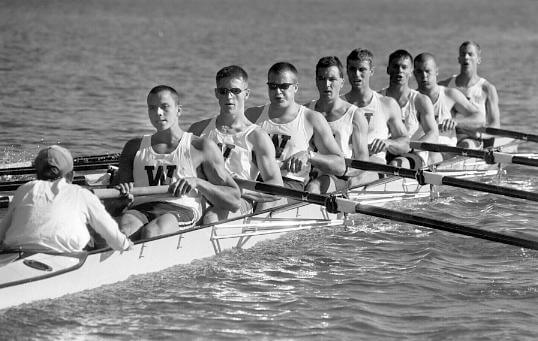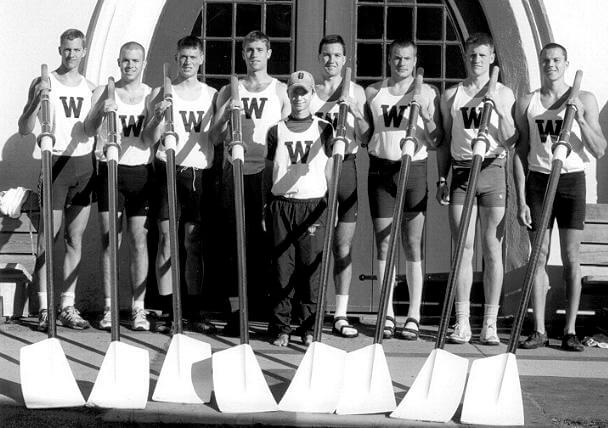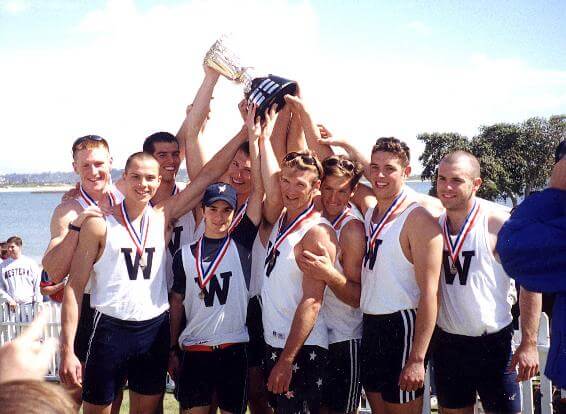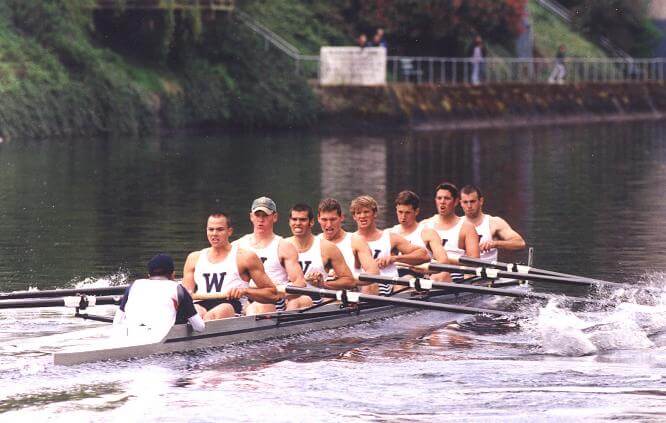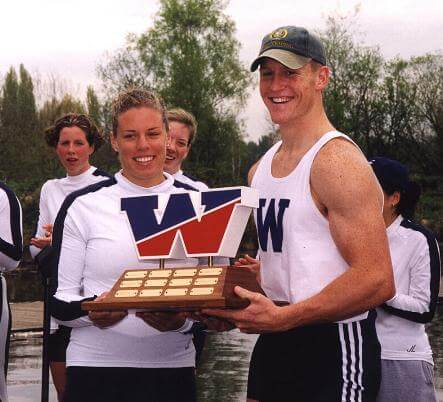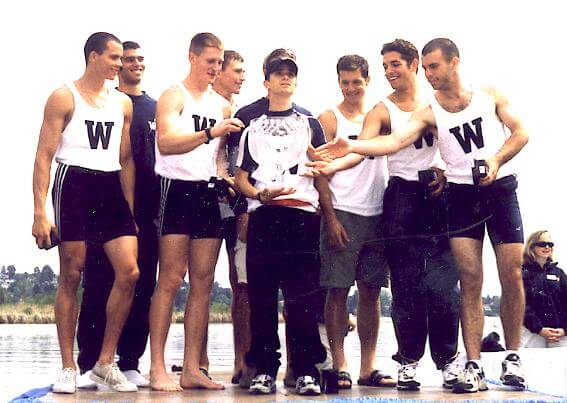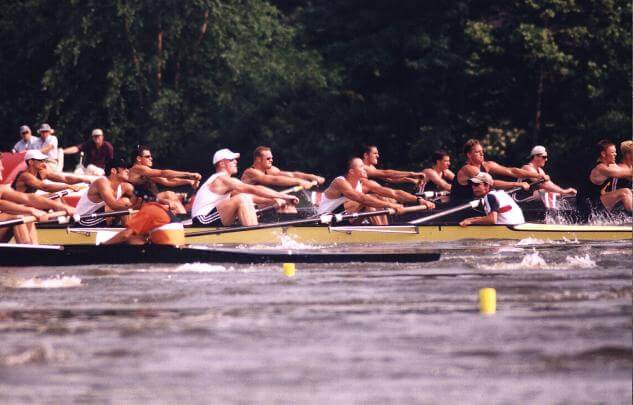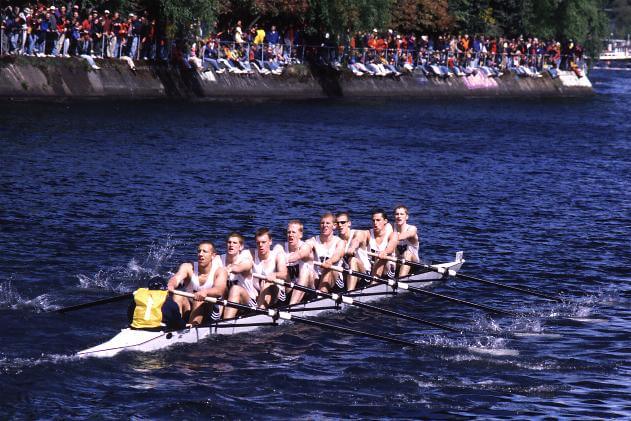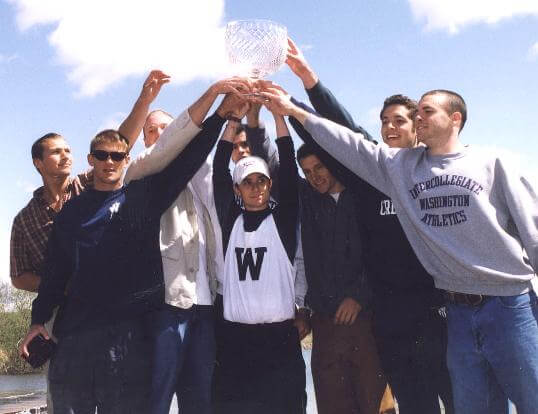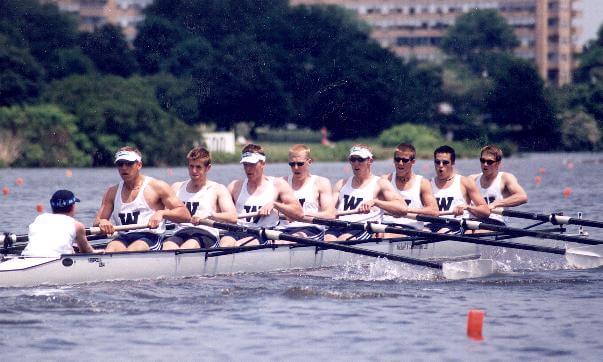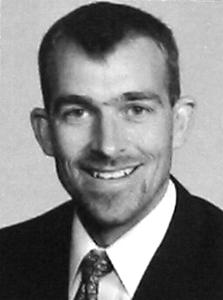Men's Crew:
1990-1999
By the time 1989 rolled into 1990, the traditions built with nearly ninety years of experience were embedded at Conibear Shellhouse. The men were living and eating together, rolling out of bed at 5:30 a.m. and on the water by six. They rowed in all conditions from September through May, they intensely competed with each other on the water, then came home for breakfast and sat down as brothers. The drying room was overpowering, the washer and dryer were always busy, and the message board was a mess. Choose a decade – even back to the old converted lighthouse on Lake Union – and give or take some technological improvements, life was pretty much the same.
In particular were the similarities of this decade to the transition from the sixties into the seventies. There was a relatively new head coach in Bob Ernst who was beginning to turn the program around; he, like his predecessor, had a vision of where the program could go and had the energy to do it. And ironically, it would be Bob Ernst that would take a crew back to the IRA twenty years after Dick Erickson had first abandoned it, going full circle on this oldest of traditions.
And it did not stop there. In fact the progression of the nineties would, in many ways, bring west coast rowing full circle at the IRA’s: from infancy, to dominance, to decline, to absence – and then back to a position of consistent participation and high performance at the storied event. And at the heart of that were two exceptional coaches; two intense, veteran competitors that would go head to head just like the Ulbrickson-Ebright days. Only now it wasn’t just two times a year; it was four times. By the time this decade was over – for those in the rowing community looking for entertainment – it did not get any better than springtime on the west coast.
